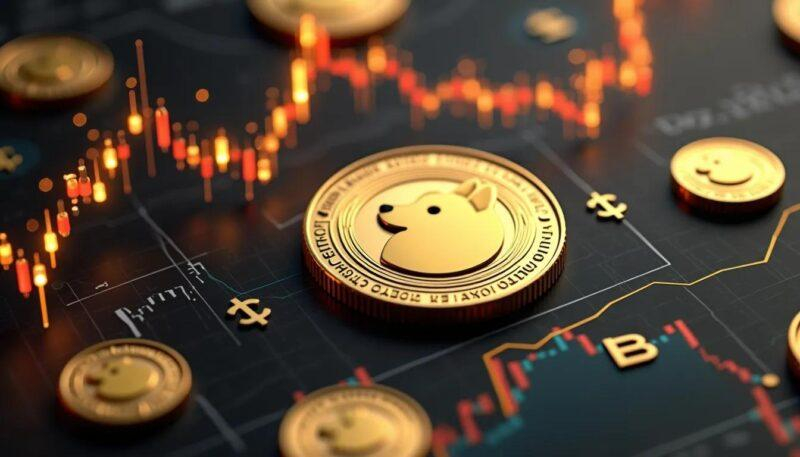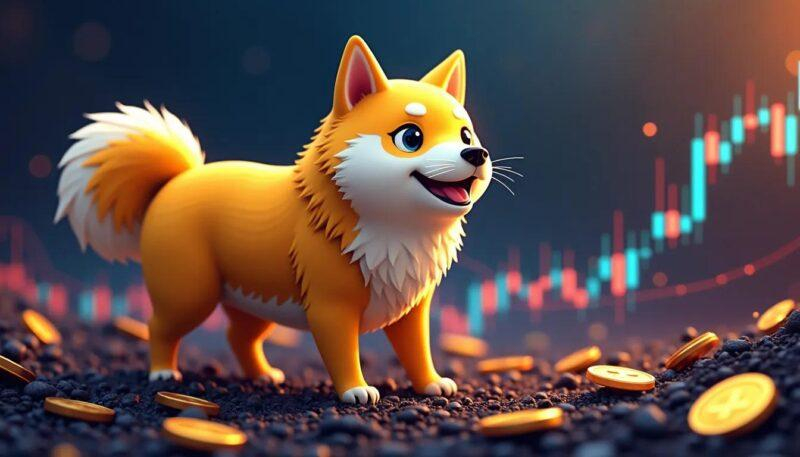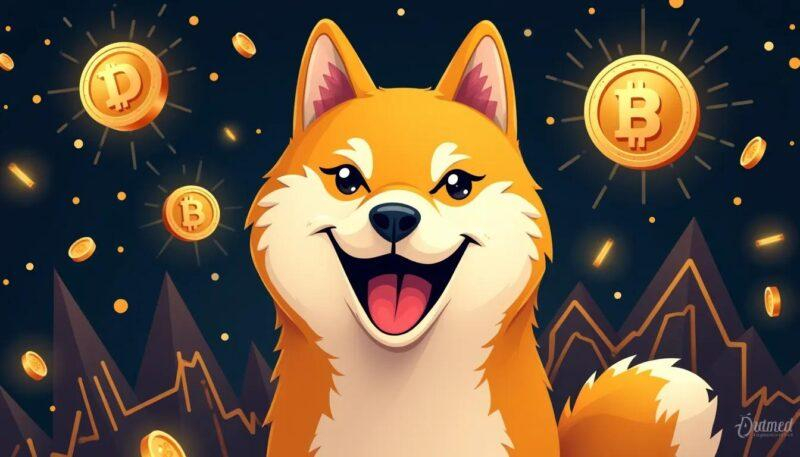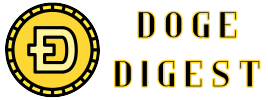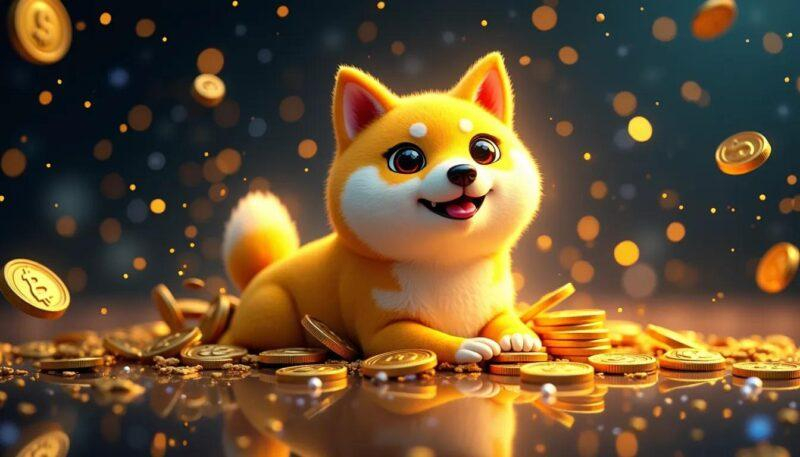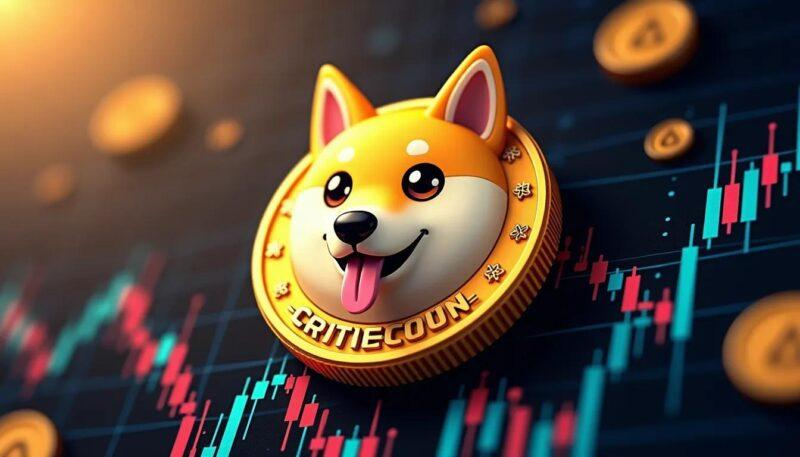In an age where screens mediate much of our experience, a new form of artistic expression has taken center stage-digital meme art. Straddling the boundaries between humor, commentary, and visual innovation, this emerging genre transforms fleeting internet jokes into vibrant cultural artifacts. As memes evolve from simple punchlines into complex, layered creations, they not only reflect the pulse of contemporary society but also challenge traditional notions of creativity and authorship. This article explores the rise of digital meme art, illuminating how culture and creativity intertwine in this dynamic digital landscape.
The Evolution of Meme Art in the Digital Age
From humble beginnings as simple, often amateurish jokes shared in chat rooms and early forums, digital memes have blossomed into a sophisticated form of expressive art. What once relied heavily on humor now intertwines satire, social commentary, and visual storytelling, reflecting cultural pulses with striking immediacy. The canvas has expanded beyond static images; GIFs, videos, and interactive formats are reshaping how audiences engage, making meme art a dynamic language of the internet age.
Key phases driving this transformation include:
- Early Internet Culture: The grassroots era of chain emails, pixelated images, and viral inside jokes.
- Mainstream Social Media: Platforms like Instagram and TikTok fuel rapid dissemination and remixing, accelerating cultural exchange.
- Digital Art Integration: The rise of meme-influenced NFT art and collaborations between meme creators and professional artists.
| Era | Characteristic | Creative Expansion |
|---|---|---|
| 1990s-2000s | Static Images and Text | Basic humor, localized sharing |
| 2010s | GIFs and Video Clips | Visual storytelling, global reach |
| 2020s | Interactive & NFT Art | Merging meme culture with digital art markets |
This ongoing evolution showcases not just technological advancements but a fascinating cultural synthesis. Memes have become a collective mirror, reflecting societal moods and ideologies while pushing the boundaries of creativity. As meme art continues to unfold, it prompts us to rethink the very definitions of art in a digital, interconnected world.
Cultural Significance and Social Impact of Memes
Memes have evolved far beyond simple internet jokes; they are now powerful social instruments that encapsulate and disseminate cultural values with lightning speed. As digital artifacts, memes act as mirrors reflecting collective sentiments, providing insights into societal moods at any given moment. Their ability to distill complex ideas into relatable, humorous, or poignant visuals and texts makes them a uniquely accessible form of communication that crosses age, language, and even geographic barriers.
In many cases, memes have sparked social movements, fueled political discourse, and fostered community-building among diverse groups. They challenge traditional media gatekeeping by allowing ordinary internet users to become cultural creators and influencers. Some key dynamics include:
- Democratization of creativity: Anyone with an idea can translate it into a viral meme.
- Rapid adaptability: Memes evolve in real-time, responding to events as they unfold.
- Collective authorship: Multiple iterations contribute to the fluidity of meme culture.
| Social Aspect | Impact |
|---|---|
| Political Satire | Encourages critical thinking and engagement |
| Community Identity | Creates shared symbols and inside jokes |
| Emotional Relief | Provides humor during challenging times |
Exploring Creative Techniques Behind Viral Meme Designs
At the heart of every viral meme lies a masterful blend of simplicity and relatability. Creators often harness visual minimalism alongside sharp, witty captions to spark instant emotional connections. This deliberate balance helps memes transcend cultural boundaries, becoming universally understandable expressions of humor and commentary. Techniques such as exaggerated facial expressions, freeze-frames from iconic moments, and clever text overlays amplify the meme’s impact by making the content instantly recognizable.
Innovation in meme design also embraces layered remixing, where creators rework existing formats to reflect current social trends or niche internet subcultures. This iterative process builds on collective creativity, generating variations that feel familiar yet fresh. Some designers lean into unexpected juxtapositions, merging unrelated images or concepts to surprise audiences and drive engagement. Meanwhile, carefully timed releases during cultural events or viral moments can enhance a meme’s reach exponentially.
Behind the scenes, an understanding of digital aesthetics plays a crucial role. The strategic use of color palettes, font choices, and composition is often underappreciated. Below is a quick reference comparing creative elements commonly used in viral memes:
| Creative Element | Effect | Example |
|---|---|---|
| Bold, Sans-Serif Fonts | Clear readability & emphasis | Impact, Arial |
| High Contrast Colors | Grabs attention quickly | Black & White, Neon hues |
| Layered Imagery | Depth & visual surprise | Face swaps, Cutouts |
| Looped Animations | Endless engagement | GIFs, short clips |
- Timing: Leveraging trending topics for maximum visibility.
- Rapport: Building inside jokes that foster community bonds.
- Relevance: Reflecting societal moods and collective experiences.
Navigating Copyright and Ethical Considerations in Meme Art
Memes thrive on remixing familiar images, pop culture references, and instantly recognizable symbols, making their legal landscape a tricky maze. While meme art flourishes through rapid adaptation and sharing, creators must stay mindful of copyright protections that cover original works. Using copyrighted material without permission can lead to legal pitfalls, but transformative uses-such as parody or satire-often enjoy some protection under fair use doctrines, though these vary widely by jurisdiction. Striking a balance between inspiration and infringement is paramount for artists wanting to respect original content while pushing creative boundaries.
Ethical considerations weave just as tightly into the fabric of meme creation. Beyond legality, there is a responsibility to avoid cultural appropriation, misinformation, or harmful stereotypes. Meme artists are increasingly aware that their work doesn’t exist in isolation-it impacts communities, shapes narratives, and influences public discourse. Respecting the subjects of memes, crediting original creators when possible, and fostering an inclusive digital culture enrich the meme ecosystem and nurture trust among audiences.
Below is a simple guideline to help meme artists navigate this complex terrain:
- Research copyright status: Identify if the content is public domain or under a Creative Commons license.
- Transform and add value: Ensure your meme provides clear commentary or parody to strengthen fair use claims.
- Credit sources: When feasible, acknowledge original creators or platforms.
- Consider impact: Evaluate if your meme respects diverse perspectives and avoids perpetuating stereotypes.
| Consideration | Key Tip |
|---|---|
| Copyright | Favor transformative content over direct copies |
| Ethics | Promote respect and avoid harmful messages |
| Attribution | Credit creators when possible |
| Legal Variance | Know local fair use laws |
Practical Tips for Aspiring Digital Meme Artists to Stand Out
Embrace your unique perspective in a sea of viral trends. The key to standing out as a digital meme artist is to infuse your personality and genuine voice into every creation. Don’t just replicate popular formats-experiment by tweaking styles, incorporating niche references, or blending genres like pop culture, surrealism, or political satire. Curate a signature aesthetic, whether through consistent color palettes, distinctive typography, or recurring characters, so your audience instantly recognizes your work amidst endless scrolls.
Leverage community interactions for both inspiration and validation. Engage actively with meme groups, forums, and social media challenges to understand current humor pulses and cultural shifts. Feedback breeds growth, and participating in collaborative projects or remix contests can exponentially expand your creative horizons. Remember, meme culture thrives on connectivity-building a loyal and interactive fan base often fuels the momentum needed to break through the noise.
Here’s a simple breakdown of habits successful meme artists cultivate to stay sharp and relevant:
| Habit | Why It Matters | Tip |
|---|---|---|
| Daily scrolling | Stay updated with trends and formats | Bookmark fresh memes for reference |
| Sketching ideas | Develop concepts before digital execution | Use notebooks or digital apps for quick drafts |
| Experimentation | Discover unique styles and voices | Try different mediums like GIFs or videos |
Remember that originality paired with timing is a superpower. While chasing virality can be tempting, consistently producing fresh and well-timed content fosters credibility and longevity in the meme art space. Harness digital tools but keep culture and creativity at the core-this balance transforms simple jokes into cultural artifacts that resonate and endure.
Q&A
Q&A: The Rise of Digital Meme Art – Where Culture Meets Creativity
Q1: What exactly is digital meme art?
A1: Digital meme art is a modern fusion of internet culture and artistic expression. It takes the familiar format of memes-those quick, relatable images or videos shared online-and elevates them through deliberate design, creative twists, and cultural commentary. Unlike casual memes, digital meme art often carries deeper meanings or artistic intent while maintaining the humor and accessibility of traditional memes.
Q2: How did digital meme art emerge as a distinctive form?
A2: The rise of social media and digital platforms gave birth to meme culture, initially as spontaneous, grassroots humor. Over time, artists began to recognize the potential of memes as a canvas for visual storytelling and social critique. This evolution transformed memes from simple jokes into a hybrid art form that blends cultural references, irony, and aesthetics, enabling creators to engage audiences in both playful and profound ways.
Q3: Why is digital meme art considered significant in today’s cultural landscape?
A3: Digital meme art captures the zeitgeist-reflecting societal moods, trends, and issues instantaneously and accessibly. It democratizes art creation, allowing anyone with a smartphone and internet access to participate. Furthermore, it blurs the lines between high and low culture, making art more inclusive and relevant to younger, digitally native audiences.
Q4: In what ways does digital meme art challenge traditional notions of creativity?
A4: Traditionally, creativity was often connected to originality and painstaking craftsmanship. Digital meme art, however, embraces remixing, appropriation, and irony. It thrives on shared references and collective authorship, pushing the boundaries of what can be considered “art” by valuing context, timing, and cultural resonance as much as technique.
Q5: What role do social media platforms play in the rise of digital meme art?
A5: Platforms like Instagram, TikTok, and Twitter act as galleries and marketplaces for digital meme art. They enable rapid dissemination, community feedback, and viral potential. These networks also foster collaborative cultures where artists and audiences co-create meanings, propelling meme art beyond individual expression into participatory phenomena.
Q6: Can digital meme art have lasting impact beyond internet trends?
A6: Absolutely. While some memes are fleeting, others tap into enduring social issues or artistic themes. When curated or archived thoughtfully, digital meme art can influence mainstream media, inspire traditional art forms, and contribute to cultural conversations long after their viral moment.
Q7: How are artists monetizing digital meme art in an increasingly digital economy?
A7: Many artists leverage NFTs (non-fungible tokens) to sell unique digital meme creations, offering collectors verified ownership of their work. Others collaborate with brands or create merchandise. The digital format makes it easy to scale distribution while maintaining creative control, opening new revenue streams beyond traditional galleries.
Q8: What can we expect for the future of digital meme art?
A8: As technology and culture evolve, digital meme art will likely become more immersive and interactive, incorporating AI-generated content, augmented reality, and virtual spaces. Its role as a cultural barometer will deepen, continuously blurring the boundaries between creativity, communication, and community in a world increasingly defined by digital connection.
Wrapping Up
As digital meme art continues to evolve, it remains a vibrant testament to the ever-shifting landscape where culture and creativity intersect. These fleeting yet powerful images capture the zeitgeist of our interconnected world, blending humor, commentary, and artistry in ways that challenge traditional definitions of art. Whether dismissed as mere internet ephemera or celebrated as contemporary cultural artifacts, digital meme art undeniably reflects the pulse of modern expression-dynamic, democratic, and delightfully unpredictable. In embracing this new form, we witness not just the rise of a digital phenomenon, but the unfolding story of how creativity adapts and thrives in the age of the internet.
